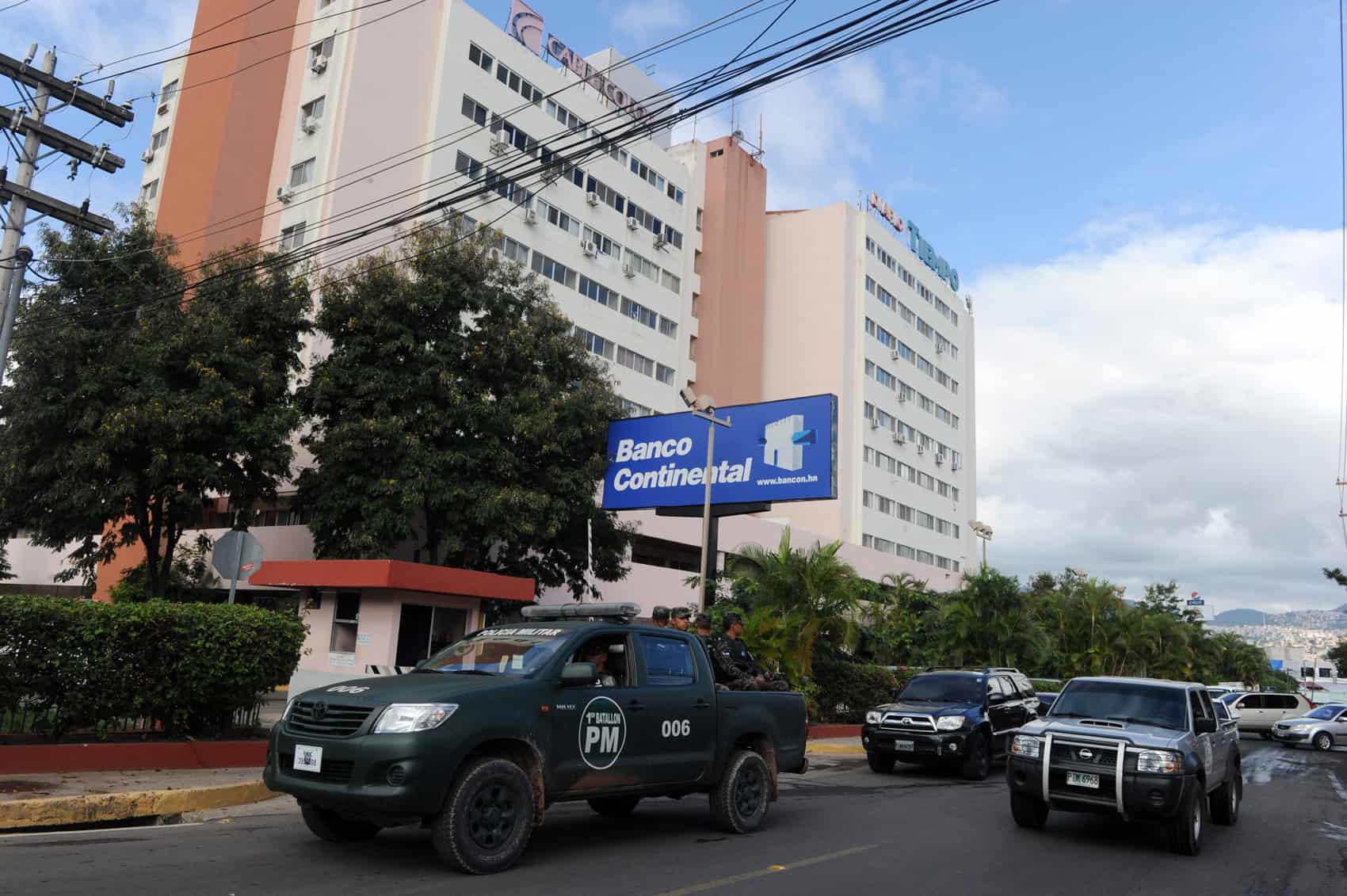A money laundering indictment by the U.S. government last week against one of the most powerful families in Honduras has rattled elites in Central America used to being treated with kid gloves by authorities. Eric Olson, associate director of the Latin American Program at the Woodrow Wilson International Center for Scholars in Washington, D.C., said the indictment could be a step toward breaking a culture of impunity among elites involved in organized crime.
Last week, the U.S. Treasury Department announced that Grupo Continental and other assets held by Honduras’ powerful Rosenthal family were being listed under the Kingpin Act as linked to illicit drug activities. At the same time, the U.S. Justice Department unsealed an indictment against Jaime Rosenthal Oliva, president of Banco Continental, his son, Yani Benjamín Rosenthal, and nephew Yankel Rosenthal for allegedly laundering money for Central American drug traffickers. Yankel Rosenthal was arrested at the Miami airport on Oct. 6.
The family has denied any wrongdoing.
Olson said that suspicions of criminal involvement have swirled around the Rosenthals and other powerful Honduran families for some time, but that the move by the U.S. Treasury Department to go after a powerful family like this is an encouraging change in how the government targets organized crime in Central America beyond gangs, such as MS-13.
“This is an interesting new step by taking it to another level by pointing a finger at the country’s political and economic elite. It’s not just gangs on the street, it’s people at this level who have enormous political and economic control of the country,” Olson said.
“I see this as a positive sign that the U.S., despite having a close relationship with Honduras, is taking some pretty bold actions by shutting down some of the richest and most powerful men in Honduras,” he said.
The U.S. indictment and Kingpin designation, which freezes designees’ U.S. assets and bans U.S. companies from doing business with them, appears to have already shown some results in Honduras. The Honduran government announced Saturday night the closure of Banco Continental, the cornerstone of a family-owned conglomerate of businesses that includes media, financial services, real estate and construction firms.
Olson said that the broad impact of the indictment — including the forced liquidation of a deposit bank like Continental — could affect large sections of Honduran society. The family’s business holdings reportedly account for 5 percent of Honduran GDP, according to a communiqué from Jaime Rosenthal Oliva, printed in the Tiempo daily newspaper. Following the announcement, hundreds of customers lined up at bank branches to withdraw their savings.
Everyday people who got hit in the pocketbook because of the Banco Continental scandal could bring additional pressure on the government of President Juan Orlando Hernández. Yankel Rosenthal, who appeared before a federal court on Wednesday in a beige prison uniform, recently served as an adviser to Hernández. President Hernández faced large protests in June and July calling for his ouster over the alleged misuse of tens of millions of dollars from the country’s public health system by his 2013 presidential campaign.
“There’s already a great deal of suspicion in the public around corruption within Hernández’s people. I would guess that this is would fan those fears and calls for accountability,” Olson said, adding if there are more investigations in the wings “that kind of information could be damaging, there’s no question.”
Besides Honduras, other Central American countries like Panama and El Salvador are potential hotbeds of money laundering. Olson said that U.S. law enforcement was likely more concerned about illicit financial flows coming out of these countries than drugs because of how light banking regulation and their dollar-based economies facilitate transfers across borders.
“I think it’s at that level where we need to break the impunity and the silence to hold those people accountable,” Olson said, referring to corruption in the highest levels of finance and politics. A lack of independence prevents prosecutors in Honduras from pursuing politically sensitive investigations, Olson said, but U.S. pressure would hopefully result in more local investigations into possible wrongdoing.
“There are a lot of others like them,” he said of the Rosenthal family. “It’s not clear if [the U.S.] will continue but it’s a step in the right direction.”






